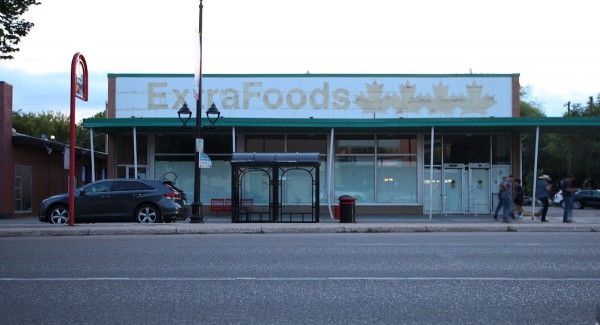Welcoming Afghan climate activists
In August 2021, as the U.S. military made a traumatic, blundering retreat from Afghanistan, the Taliban took over the capital city of Kabul. A mass exodus of Afghan refugees followed. Some of those with international passports or who had worked with foreign forces were evacuated by U.S. planes. Many others fled to neighbouring Pakistan, crossing by land through the Chaman border.
Among those seeking asylum in the wake of the Taliban’s resurgence have been climate activists who have worked for social and environmental justice in their country – and are thus under threat of persecution from the Islamist fundamentalist organization.
Climate justice organizations across the world have committed to helping Afghan activists find asylum. In Saskatchewan, Climate Justice Saskatoon (CJS) is one such organization, announcing in October that it would help bring Afghan refugees to Saskatoon.
Global climate justice
Decades of war and American military occupation have destroyed the country’s infrastructure, turning Kabul into one of the cities with the worst – and deadliest – air pollution in the world. Germanwatch’s Global Climate Risk Index ranked Afghanistan sixth in the world among countries most impacted by climate-related natural disasters. In response, Afghan climate activists have marched under the banner of the Fridays for Future movement, participating in global climate strikes.
But since returning to power, the Taliban has been actively seeking out Afghan journalists and activists – going door to door and, in some cases, killing or kidnapping those they believe have worked with foreigners.
“We will be able to support a young female university student and in addition, we will be supporting a young couple who are expecting their first child,” MCC’s website explains.
In response to Afghanistan’s crisis, the Government of Canada has committed to resettling up to 40,000 Afghan refugees, waiving application fees and prioritizing applications from some. But advocates say that government inefficiencies and stringent screening of supposedly “risky” refugees have left many asylum seekers in limbo or, worse, in danger.
In September, Afghan refugees started arriving in Saskatchewan, and 200 of them have landed in Saskatoon so far. Local Afghan communities and organizations have been extending hospitality and accepting donations to ease the transition for the refugees, many of whom are arriving with little more than the clothes on their backs.
David Sanscartier, a member of CJS and volunteer sponsor for Afghan refugees, explains that Climate Justice Saskatoon is focusing primarily on supporting “people at risk because of either their gender, [or] their affiliation with the type of work they’ve done. […] Either climate activists or women who lost their jobs when the Taliban took over.”
Because CJS is not a charity, they are collecting donations through a partnership with the Mennonite Central Committee (MCC) Canada, allowing MCC to issue a charitable tax receipt for donations over $25. MCC is also a Sponsorship Agreement Holder (SAH), holding a contract with the Government of Canada that permits MCC to sponsor refugees.
So far, the two organizations have raised over $41,000 from 57 donors and are working toward a goal of $45,000. “We will be able to support a young female university student and in addition, we will be supporting a young couple who are expecting their first child,” MCC’s website explains. “These folks are all involved in social and environmental justice work and at high risk of being targeted by the Taliban in their home country.”
With parts of Afghanistan having warmed twice as much as the global average, it’s likely that drought will become the country’s new norm by 2030.
CJS and MCC plan to cover the cost of relocation, including flights from Pakistan to Saskatoon, as well as a year of costs associated with starting a new life in Saskatchewan. Along with money, they are also accepting offers of housing, new and gently used furniture and household supplies, and domestic support.
Sanscartier adds that most of the funds need to be acquired before refugees arrive in Canada, as they are not eligible for government funding in Canada otherwise. However, fundraising will continue even after the refugees’ arrival.
Mark Bigland-Pritchard is the migration and resettlement coordinator for MCC Saskatchewan and is also an organizer with CJS. He says that the objective is to ease refugees’ transition to Canada: “We want them to hang onto their culture, but still be able to live here.”
Afghanistan’s climate crisis
The last six months have been just one small part of the larger Afghan refugee crisis. According to the United Nations High Commissioner for Refugees, nearly six million Afghans have been pushed out of their homes by decades of violence and poverty.
As Bigland-Pritchard explains, “I don’t think we can avoid the reality that climate change has contributed to the crisis in Afghanistan.”
Afghanistan, largely dependent on agriculture, has seen declining spring rains and droughts in the country’s north and west. As a result, one-third of the population is facing “crisis” or “emergency” levels of food insecurity, according to a June report by the Norwegian Refugee Council. With parts of Afghanistan having warmed twice as much as the global average, it’s likely that drought will become the country’s new norm by 2030.
Bigland-Pritchard adds that reducing the casualties of climate change in Afghanistan requires – among other things – wealthy countries like Canada cutting their own emissions. CJS has made this a focus of their advocacy – pushing Saskatoon city councillors to reduce the city’s emissions, intervening in a court case over the constitutionality of the federal government’s carbon pricing, and publishing a report on a just transition to renewable energy in Saskatchewan.
Bigland-Pritchard sees CJS’s climate activism as highly connected to their efforts to sponsor Afghan refugees. “There’s only so many things where the Canadian government actually enables us to genuinely help people so I think [we should] take advantage of them when we can,” he says.
To help CJS support Afghans relocating to Saskatoon, visit donate.mcccanada.ca/registry/cjs.




